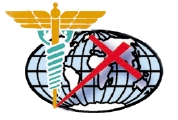Country: Belize, Dominican Republic, Haiti, Honduras, Nicaragua, Peru, Saint Vincent and the Grenadines
Length of Trip: 1 Week
Trips per Year to Latin America: 11
Cost: $1,750
Urban/Rural: Rural
Type of Volunteer: Physician/mid-level provider, Nurse, Pharmacist
Type of Organization: Faith Based
Type of Clinic: Mobile or Informal Clinic
Description:
Volunteers in Medical Missions is a short-term medical mission outreach with long-term goals. Our desire is to partner with believers in cross-cultural settings who are making disciples and to use our medical experience and resources to display mercy and help promote the expansion of the gospel in those areas.
In the Village Health Worker (VHW) program a person living in a remote and medically isolated community is elected by his peers and trained by a local physician to handle basic but potentially serious illnesses. These illnesses would include pneumonia, diarrhea, malaria, dengue, meningitis, anemia, fever, UTI, URI, ear infections, GI parasites and asthma. The medical supplies are donated – currently through the Watson Foundation in Texas.
An overview of a VIMM clinic
VIMM teams are generally made up of primary care physicians (family practice, pediatrics, and internists), nurses (RN, LPN), a pharmacist, non-medical lay people for evangelism, and dentists. Most teams have 3-5 physicians/nurse practitioners, 3-5 nurses, 1-2 dentists, 1-2 pharmacists, and 3-6 lay people. We operate in remote locations and do not require electricity other than for lights if working after sunset. Most clinics are located in church buildings, existing health care facilities, or even local homes. In hot climates, we often will work outside. Team members work in the following stations: registration, vital signs, exam area/minor surgery, pharmacy, de-worming, and evangelism stations. Translators are needed in registration to record the patient's name, age, chief complaint, allergies and any other pertinent information. Nurses will take vital signs when necessary (patients with fever, history of hypertension, etc.). The physicians examine the patients; determine medication or minor surgery needs, record medication prescriptions on the paper from registration, then send the patient to the pharmacy. The pharmacy is the beehive of the operation! We will fill 1,000 plus prescriptions per day (approximately 500 patients seen per day). While patients are waiting at the pharmacy, our evangelism team members can often pray with the patients, perform a Gospel puppet show, or share Scripture with the patients. The De-worming station is next to the pharmacy -- Albendazole or Piperazine is given to all non-pregnant women, children, and adult males. We need to have at least two doors in the facility so that patients can be registered at one door, then move smoothly through the clinic and exit through a back door (near pharmacy). Translators are essential in the Pharmacy area and to ask additional questions the physicians may need to ask. Our teams frequently sleep in one location, then travel each day to a "clinic" site.
We try to have team members to be reasonably comfortable. We do not require 4 or 5 star accommodations. Ideally, if the accommodations provide a bed and mattress, shower or bath facilities, and a toilet, most people will be very happy. Air conditioning is nice in very hot climates but not always available.
Organizational Base: Seneca, South Carolina
Other Programs: Evangelism, Dentistry

 (5 / 5)
(5 / 5)  (1.7 / 5)
(1.7 / 5)  (4.2 / 5)
(4.2 / 5)
Comments
0 comments